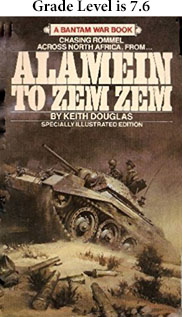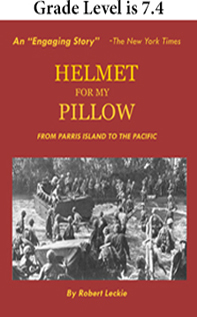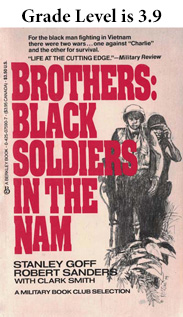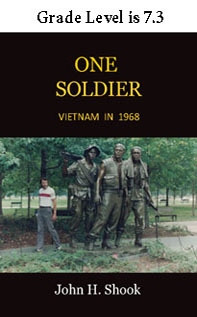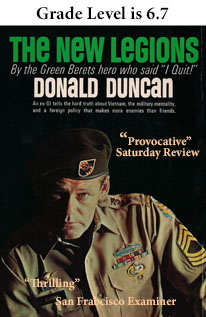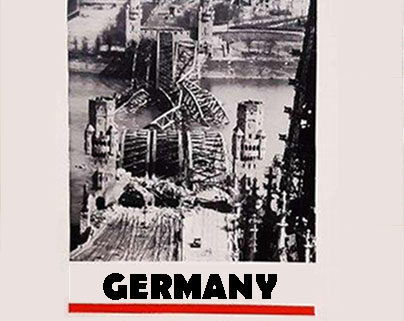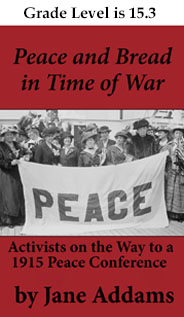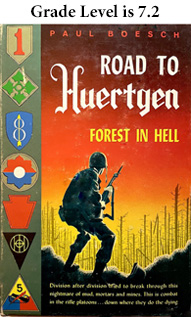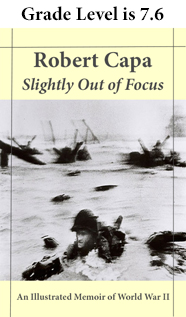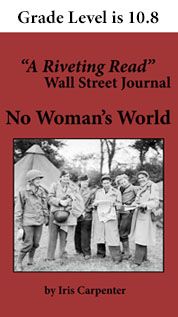Alamein to Zem Zem by Keith Douglas
The epub format below is for your Apple and Android devices including the Send-to-Kindle feature in Amazon.
Download the mobi file for Amazon devices except the Send to Kindle feature here.
The reading level is 7.6 on the Flesch-Kincaid readability test. This book is in the public domain due to the author’s death in 1944 in Normandy. Copyright in the U.K. lasts for 70 years after the author’s death.
Reviews from Goodreads (4.18 rating with 620 ratings and 36 reviews):
One of the most vivid books of WW2 reportage ever written. It reads as quirky and unvarnished as ever and captures the brutality and sheer oddness of tank warfare.
An excellent book. What distinguishes it from the very many desert war memoirs is the details of daily life. This is because the book was built-up from very detailed diary entries, so that the excitement of looting some decent coffee, for example, or the author’s irritation at getting his prized uniform damaged beyond repair by the regimental doctor (to save his life!) are recorded in a detail rarely seen in more sweeping memoirs. This makes it a fascinating read in which one comes closer to understanding the actual life of a desert rat than in any other book I’ve read…
A marvelous read , full of humour and humanity. It has the ring of truth full of characters well described. He does not hide from the sheer awfulness of war but the anecdotes and lively description of his situation raise this memoir above the ordinary. Can recommend.
No preliminary b.s. in this book. By page 3 the author has gone A.W.O.L. from his desk job and headed into the North African desert to fight in Crusader tanks. This is small book but is full of terrible fighting, down time and the constant search for food, water and loot. It shows all the confusion of combat and how horrendous some of the injuries can be.
The author survived North Africa only to be killed on his third day in Normandy.
With this gripping and moving memoir Keith Douglas made a truly valuable contribution to the literary canon of the Second World War. Douglas drops us into his story with minimal introduction or context and ends with a trivial and tasteless comment about going out to gather loot. What happens to Keith and his unit, the Sherwood Rangers Yeomanry, after they leave Zem Zem is left unexplained. This is a book written very much in the moment, and Douglas’ observations and comments on his comrades, the enemy, his surroundings, and the war in general, have an immediacy that would likely be lost in a work written more analytically or at greater distance.
His wry observations are often both memorable, amusing and affecting: “it is exciting and amazing to see thousands of men, very few of whom have much idea why they are fighting, all enduring hardships, living in an unnatural, dangerous, but not wholly terrible world, having to kill and to be killed, and yet at intervals moved by a feeling of comradeship with the men who kill them and whom they kill, because they are enduring and experiencing the same things. It is tremendously illogical – to read about it cannot convey the impression of having walked through the looking-glass which touches a man entering a battle.” Douglas recognizes the irony and dark humour in the war and this suffuses his writing throughout the book, both in how he records his experiences and in his reflections on them.
Again he has the poets eye for beauty and emotional resonance, such as in this poignant passage: “Sometimes the surface of the desert where we halted for a few hours or a few days was thick with flowers which changed the ridges and hollows whose sandy colour had for weeks been relieved only by stones, the hiding places of scorpions – or the dead grey spouts of camelthorn – into undulating distances of blue-green. The sweet scent of the flowers would come up to your nostrils even in a tank turret, moving along; it could overcome all the odours of machines.” It’s not quite England’s green and pleasant land, and the war overshadows everything, but Douglas can readily tap into his own and his readers feelings, and not merely record the external details of his experiences. That same ability is apparent both in more pastoral passages such as the above, and in his more breathless memories of being under fire.
I’m glad I read this, and anyone with an interest in the Second World War will likely enjoy it. I’ll leave the last word of wisdom to Keith Douglas himself, in what is a fine proverb and rule for life:
“Books and flowers are invincible beautifiers. I have often used them to make horrible surroundings habitable.”

